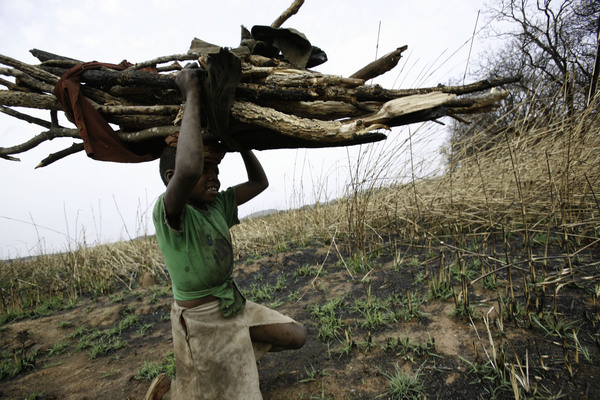
THE CENTRE SPREAD BY FELUNA NLEYA
_______________________________________
The overall pass rate for 2013 was pegged at 20, 72%, up two percentage points from 2012’s 18, 4%. The results confirmed widespread sentiments over the years that the majority of pupils who sit for Ordinary Level examinations struggle academically and there is, therefore, need for greater emphasis on practical subjects to cater for those not academically gifted.
Primary and Secondary Education minister Lazarus Dokora concurs that there is need to increase technical-vocational subjects and afford pupils more choices.
“These technical vocational subjects are meant to give candidates real-life skills and enhance the transition from school to the world of work for many who do not proceed with further education,” said Dokora. “Technical-vocational subjects offered at schools need to be retained and in fact increased.”
He said it was disturbing that while many schools now had computers, they were not offering computer studies and government would embark on a comprehensive, holistic approach to enhance the teaching of technical subjects such as Agriculture, Woodwork, and Home Economics.
Lack of a spirited campaign for technical subjects has seen low candidature with Music having just 211 candidates, Food and Nutrition 4 874 candidates, Computer Studies 1 533 candidates, Business Studies 3 633 candidates and Home Management just 43 candidates across the country.
Parents who spoke to NewsDay say broadening the scope of subjects offered at secondary school would ensure that every child — including those that struggle with purely academic subjects — will also have an opportunity to excel in other skills that do not necessarily require one to be academically-oriented.
- Chamisa under fire over US$120K donation
- Mavhunga puts DeMbare into Chibuku quarterfinals
- Pension funds bet on Cabora Bassa oilfields
- Councils defy govt fire tender directive
Keep Reading
Many parents have been forced to continue looking after their adult children who would have failed at school and therefore cannot secure employment and, at the same time, have not acquired extra-curricular skills that may help them engage in other trades to earn a living.
There is, however, need for government to fund training centres across the country and elevate their status so that they can attract students who need to be equipped with a variety of skills.
Bridget Sabau said it was important for such centres to be recognised so that the skills in which they train people will be embraced by many.
“The government should put more effort too in those practical subjects so that every child has a chance. The vocational centres too should be well recognised because I cannot imagine my son going to Kaguvi Training Centre in its current status, but it’s important for the non-academic children,” she said.
Basic subjects such as English Language and Mathematics produced 28,98% and 28,0% respectively and observers note this is an indication that for a long time, the country has placed too much value on academic subjects at the expense of practical subjects.
Although the all-girls school Monte Cassino Girls High School topped the list in the 2013 examinations at “O” Level with a 100% pass rate, the national picture demonstrates that boys continue to fare better than girls in the academics.
According to the Zimsec statistics, females had a percentage pass rate of 18,51% while their male counterparts registered 27,41%, a difference of 8,9%. During the 2012 examinations, the pass rate for males was pegged at 20,4% against the females’ 16,4%.
Given the patriarchal nature of society, boys have generally had better opportunities in education. Although in the past few years, there has been an increase in the number of girls successfully completing secondary education, some socio-cultural factors have continued to hinder their performances.
First, there is the issue of low enrolment and high dropout rates for girls at all levels of education and this is because of the negative attitude that many parents have towards the education of girls.
This negative attitude is attributed to traditional socio-cultural beliefs regarding gender roles and abilities.

In African tradition and culture, women are expected to assume the roles of mothers and wives. Those few that would have been allowed to see their education through to the “O” Level had to juggle between schoolwork and household chores.
Some girls have limited time of study as they also have to be doing house chores. For day scholars they tend to come back home and instead of being on their books they are made to cook and clean and this takes up some of their study time.
By the time they want to get down to books they are exhausted and all they think of is sleep and not study.
For those in boarding school during holidays instead of revising their schoolwork they are made to do some house chores thereby having limited study time. The United Nations millennium development goal three is to promote gender equality and empower women.
In Zimbabwe promoting gender equality and empowering women, is likely to be fulfilled in part by 2015.
Gender parity in enrolment and completion rates has been achieved at primary and secondary school, giving hope gender disparity would have been eliminated by 2015.
Recently, during the burial of his “more academic and less practical” sister, President Robert Mugabe emphasised the need for pupils to fall in love with practical subjects.
He said he had come up with the ministry of State for Liasing on Psychomotor Activities in Education which is supposed to cater for the practical subjects.
Mugabe said if one gets an education that does not enable him or her to do professional courses, the technical-vocational subjects were there to provide students with life skills that enable those less gifted academically to venture into other fields like carpentry, building and agriculture.
In 2012, the overall pass rate was 18, 4%. As can be observed, the pass rate increased by 2,32%.” The total number of candidates who entered for “O” Level in 2013 was 285 260 against the 268 854 registered in 2012.
Most church-related schools made it into the top 100 schools list.
It is unfortunate that while other students go to collect their results, some 680 will have to wait a little longer for their results as the ministry is still investigating the alleged examination paper leak by a Manunure Secondary School teacher in Kwekwe.
The teacher is alleged to have leaked Geography and Integrated Science question papers; hence the results of up to 680 candidates from some secondary school centres were embargoed to allow for further investigations to take place.
The centres affected are Marathon Academy, Mbizo, Manunure, Amaveni, Globe and Pheonix, Kwekwe, Mambo, Zesa Munyati and Chituripasi.
Former Minister of Higher Education David Coltart recently said there was need for the government to add vocational subjects so that they cater for the less academic students.
He said the 20,72% pass rate was going nearer to the standard set for the acceptable pass rate.
“People might think it’s bad, but it is getting closer to the percentage expected in accordance with the level set,” said Coltart. “It is not far from that standard that was set of around 24%. “The academic side of the education system is working fairly well and has produced better results, what’s missing is the vocational training in the schools.”













